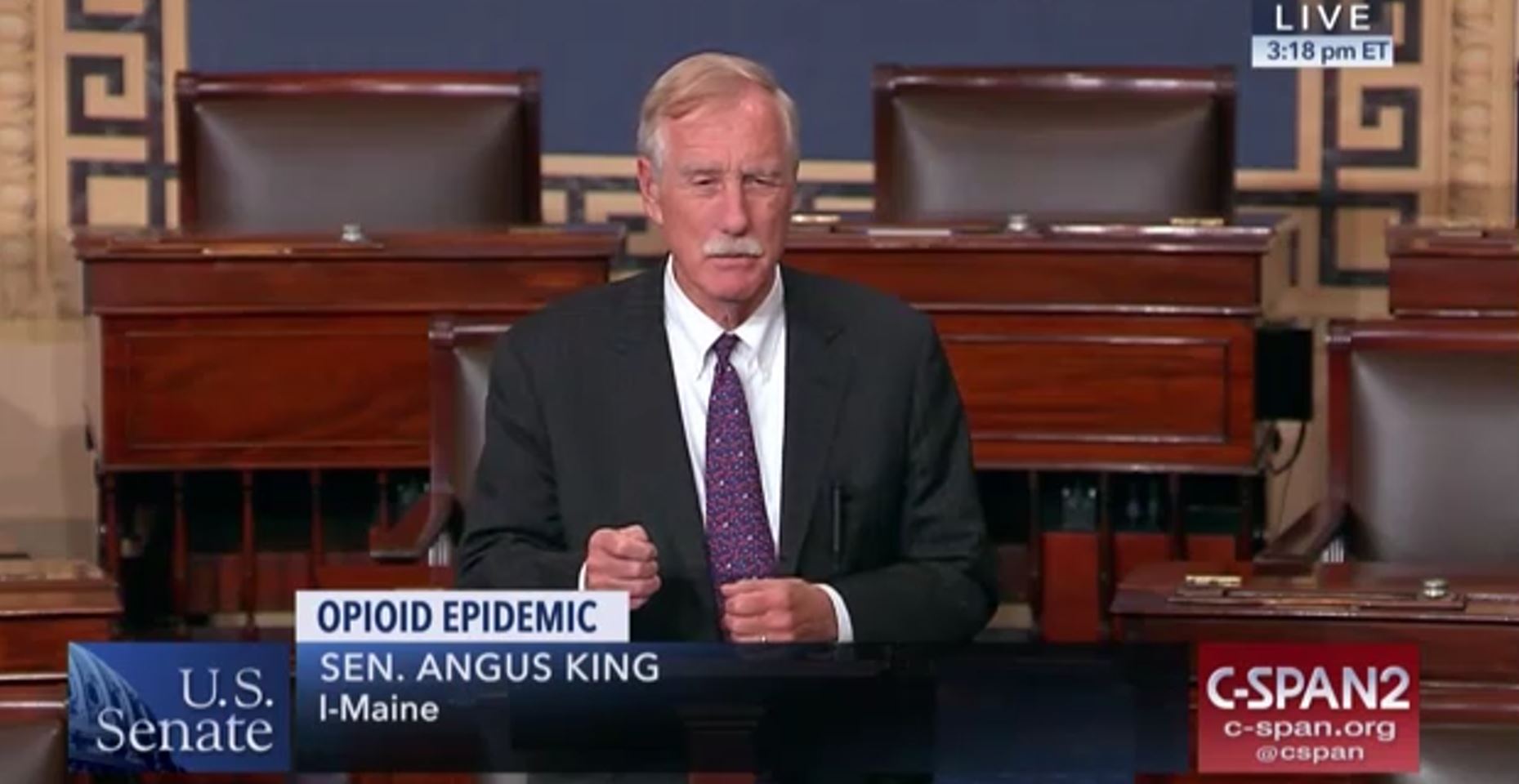September 17, 2018
WASHINGTON D.C. – Today, U.S. Senator Angus King (I-Maine) spoke on the Senate Floor in support of the Addiction Treatment Access Improvement Act, which would permanently authorize nurse practitioners and physician assistants to prescribe medication-assisted treatment for opioid use disorders. Though this legislation is not a part of the Senate opioid package that is expected to be taken up today, it was included in the House of Representatives’ version, and Senator King is hopeful it will be included in the conference committee’s final report.

Click HERE to watch Senator King's remarks.
“The discussion today is about the opioid crisis, one of the most serious public health crises I have seen in my adult life, certainly in the state of Maine.” said Senator King in his speech. “It's an enormous problem across the country, particularly in rural areas. In my state we are losing more than one person a day to an overdose death. That is an epidemic by anybody's definition…[and] the numbers continue to get worse. More and more families are being devastated by this crisis, and there aren't many answers being provided. There is, however, one ray of hope that this bill that we're going to be discussing and voting on this afternoon does provide, and that is: Treatment works. Recovery is possible."
“Now, the problem is that treatment, particularly in rural areas, is short on infrastructure. It's short on people who can deliver the treatment. And we can fund programs and talk about them here, but if you are talking about a rural county – about Milo, Maine in Piscataquis County – you're not talking about a tremendous amount of infrastructure. But there is available an army of people who can contribute to the solution of this problem. The people I'm talking about are nurse practitioners. Nurse practitioners are, in many ways, among the unsung heroes in the health care discussion – particularly, in rural areas where there aren't a lot of physicians. But nurse practitioners were enabled in the CARA bill to provide…medicine assisted treatment, but the problem is that authority expires in 2021....We need to fix that. It’s working – it’s an important part of our ability to deliver these life-saving services. And we’ve got people in Maine, nurse practitioners who are ready, willing, and more-than able…to deliver these life-saving services. 1,700 of them in the State of Maine.
“Now, the bill we're going to be voting on this afternoon unfortunately does not have this extension in it, but I'm here this afternoon to urge those who are going to be supporting the bill and then working on it in conference with the other body to [make] this small change…Let’s for once, do something before it’s a deadline. Let’s do it now…I rise to support the bill, but also to suggest this small change that I think will dramatically increase the effectiveness of the treatment that the bill enables, and will allow it to be delivered in an equitable and direct and important way to people all across the country, no matter where they live...”
Senator King has made combating the opioid crisis one of his top priorities in Washington. During his speech, Senator King referenced the Portland Rally 4 Recovery, which he attended last week to celebrate those who are successfully recovering from Substance Use Disorders (SUDs). In July, Senator King hosted a panel of medical professionals, employers and advocates to discuss the opioid crisis and reduce the stigma surrounding SUDs. That same month, he met with the US Department of Agriculture (USDA) Assistant to the Secretary for Rural Development, Anne Hazlett, and a number of medical professionals, law enforcement officers, advocates and local leaders at a Bangor roundtable discussing the opioid epidemic’s impact on rural Maine. In June, he highlighted the importance of the Affordable Care Act’s protections for individuals with pre-existing conditions to those struggling with substance use disorders – which is considered a pre-existing condition, so those who seek treatment could then be denied coverage or charged exorbitant rates based on their past substance use. He has repeatedly called on Congress and both the Obama and Trump administrations to fund laws and agencies that help address the drug epidemic.